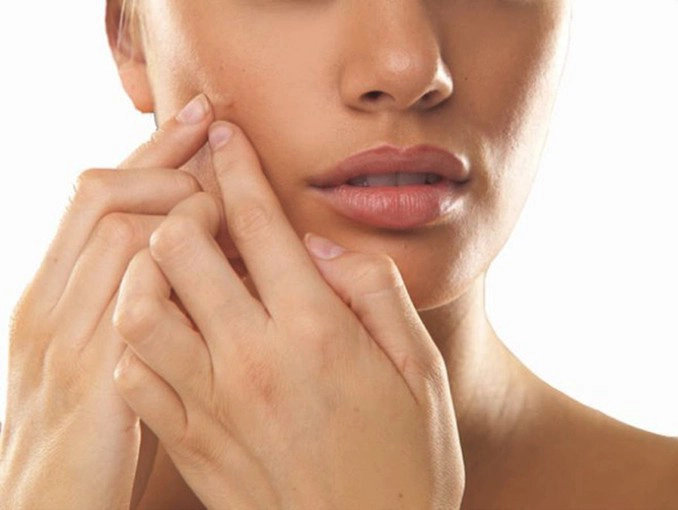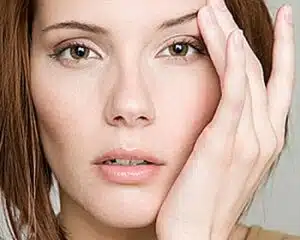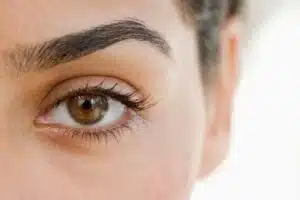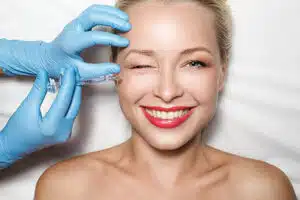Suffering from acne during adolescence is a common but unpleasant problem. However, in many cases, this skin condition, which is responsible for many emotional repercussions and a loss of self-esteem, can extend into adulthood. One out of every five women aged 25 to 45 is affected by it [1]. Luckily, there are plenty of solutions for tackling this uncomfortable condition head on.
What is acne?
Acne is a disorder of the pilosebaceous follicles caused by the inflammation of the sebaceous glands in the epidermis. These glands may be obstructed by impurities, skin layers, or fatty secretions. Pimples may then form and become infected by the bacteria Propionibacterium acnes, which is responsible for acne.
There are two types of adult acne. For people with persistent acne, the condition was already present during adolescence and did not subside in adulthood. This is the most common case. Late-onset acne, meanwhile, appears for the first time after coming of age.
What are the causes of adult acne?
Heredity
Unfortunately, 50% of the people affected are genetically predisposed to acne. In this case, you should choose an effective treatment to get rid of this hereditary affliction.
Hormonal fluctuations
The hormonal changes experienced during pregnancy, menstruation, and menopause greatly contribute to the appearance of acne. Oral contraceptives are sometimes prescribed to women who suffer from it since they contain progestin and estrogen, which can stabilize the hormonal fluctuations related to the menstrual cycle.
Taking or going off medication
Going off the birth control pill can be accompanied by more frequent acne outbreaks; the same goes for taking other types of medication, such as those based on lithium, anticonvulsants, and corticosteroids.
Stress
Androgens are hormones produced by your body when it experiences moments of anxiety. By stimulating the glands that secrete oil and the hair follicles, these hormones make you more prone to acne.
Your choice of cosmetics
The products needed to care for your face and hair, as well as makeup, may influence the quality of your skin. It’s therefore important to choose non-comedogenic products designed not to obstruct the pores of the skin, such as those from the Functionalab line. Active ingredients such as glycolic acid and zinc can help destroy bacteria and improve healing.
Treatments
- Topical products or systemic medications
Many topical products are sold over the counter, such as medicated soaps, ointments, and cleaning solutions containing salicylic acid.
Medications that require a prescription may include antibiotics, such as erythromycin, which helps control inflammation, vitamin A derivatives (retinoids), or hormonal agents.
Able to treat the visible signs of mild, hormonal, and severe acne, pulsed light operates on a specific wavelength and provides safe therapeutic action. This is a healthy alternative to medication that works on the inflammation, the nodules, and the acne bacteria itself. It takes around 4 sessions once a month to control pimple outbreaks.
By exfoliating the skin chemically with a glycolic peel or mechanically with diamond microdermabrasion, you eliminate a layer of dead cells and clear up the pores. Your skin can thus regenerate itself more easily and topical products can more easily be absorbed.
- Fractional resurfacing by Fraxel®
Reducing the appearance of scars left behind by acne, the Fraxel® resurfacing laser generates microperforations in the epidermis to stimulate the skin’s natural healing process and build a new skin structure free from marks and holes.
No matter which treatment you choose, it’s essential to remember that a complete protocol is required to give your skin back its radiant complexion. The daily use of suitable products combined with a clinical treatment will be your best ally in the fight against blackheads.
[1] Source: Acne and Rosacea Society of Canada






